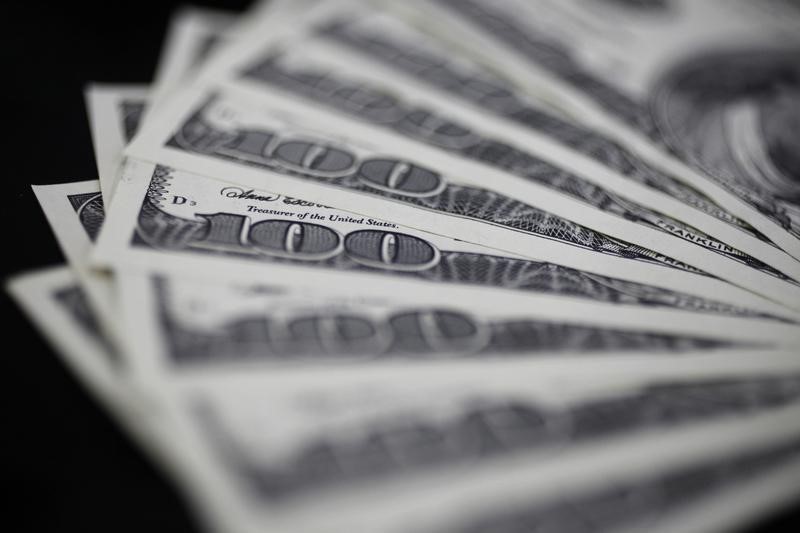By Peter Nurse
Investing.com - The U.S. dollar edged higher Monday, remaining near a 20-year high at the start of a week dominated by a number of central bank meetings, including a crucial Federal Reserve gathering.
At 03:10 ET (07:10 GMT), the Dollar Index, which tracks the greenback against a basket of six other currencies, traded 0.3% higher to 109.793, not far removed from the two-decade peak of 110.79 reached on Sept. 7 for the first time since mid-2002.
The main focus of attention this week will be on the U.S. Federal Reserve, which is scheduled to start its latest two-day policy-setting meeting on Tuesday.
The hotter-than-expected U.S. consumer prices for August have cemented expectations for another large rate increase at the conclusion of its meeting on Wednesday. A 75-basis-point rate hike is widely expected, but some investors are bracing for a full percentage point hike, and it’s this possibility which is keeping the dollar fully supported.
“We expect a third consecutive 75bp hike,” said analysts at ING, in a note. “High inflation means 100bp is a risk, but inflation expectations and corporate price plans look less threatening and the growth outlook is more uncertain so we don’t see it. Still, a more hawkish message surrounding sticky inflation will see the Fed dots closer reflect the market pricing of a 4.25-4.5% terminal rate.”
The Fed isn’t the only central bank meeting this week – policymakers in the U.K., Switzerland, Norway and Japan will also meet during the week as the global fight against inflation intensifies.
USD/JPY rose 0.3% to 143.28, in quiet trading with Japan on holiday and ahead of Thursday’s Bank of Japan meeting. The Japanese central bank is very likely to stick with its very loose monetary policy, which has weighed heavily on the year.
That said, the central bank may say something about yen weakness amid speculation that Japanese authorities are close to intervening in the foreign exchange market to support the weak currency, which hit a 24-year low against the dollar earlier this month.
Elsewhere, the Bank of England, the Swiss National Bank and the Norges Bank are all expected to hike interest rates even as growth in Europe weakens substantially.
The World Bank warned last week that the world’s economy has been slowing sharply, and even a "moderate hit to the global economy over the next year could tip it into recession."
EUR/USD fell 0.5% to 0.9970, GBP/USD dropped 0.2% to 1.1385 and the risk-sensitive AUD/USD dropped 0.5% to 0.6684.
USD/CNY rose 0.4% to 7.0103, with the pair climbing to an over two-year high, remaining above the psychologically-important 7 level after the People’s Bank of China cut a repo rate on Monday, attempting to support an economy that was severely dented by COVID-related lockdowns.
